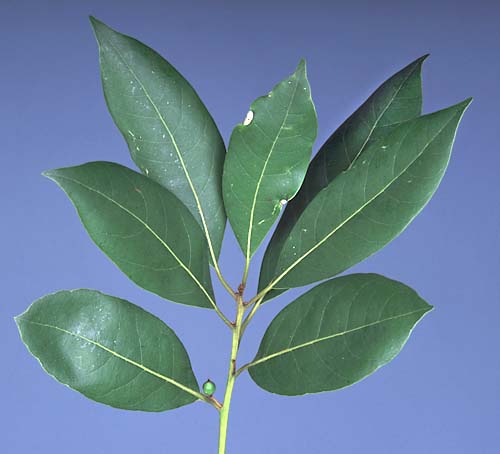Redbay
Persea borbonia
Family: Lauraceae
Natural History

Leaves and fruit of redbay | Photo credit: Larry Korhnak, University of Florida
Redbay is related to the bay laurel (Laurus nobilis) - the tree that provides bay leaf spice. The leaves of the redbay can also be used in cooking. It is important to note, however, that similar-looking leaves of some species such as the English laurel (Prunus laurocerasus) may be poisonous. To stay safe, get your bay leaves from the grocery store instead of the forest!
Unfortunately, widespread mortality of the redbay is being experienced in the coastal regions of South Carolina, Georgia, and Florida, due to a disease called laurel wilt. The disease is caused by a fungus (Raffaelea sp.) that is carried by a non-native insect - the redbay ambrosia beetle (Xyleborus glabratus). The fungus inhibits the flow of water in infected trees - causing the leaves to wilt and eventually leading to the death of the plant.
Laurel wilt also affects avocado (Persea americana) and other members of the Lauraceae family. The disease is therefore of utmost concern to many stakeholders. The presence of the redbay ambrosia beetle was first detected in the United States in 2002. It was discovered in Florida in 2005.
